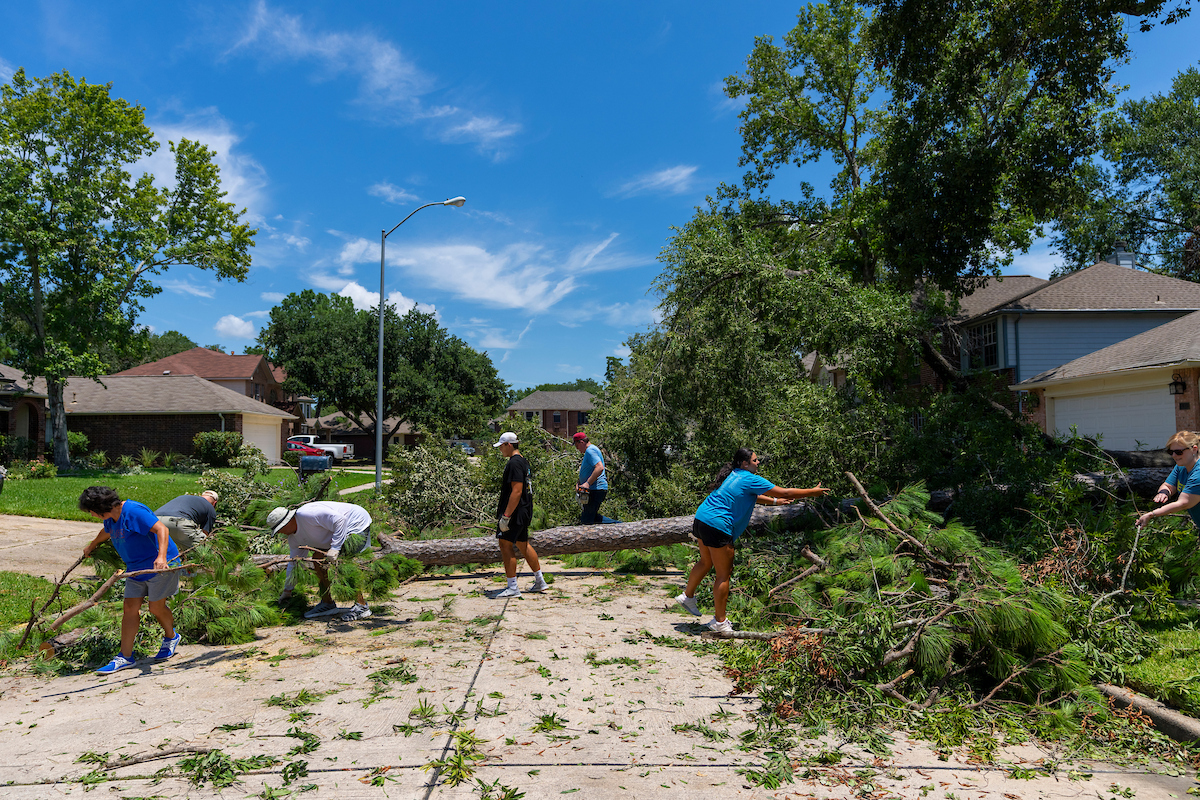More free testing available for private water well owners affected by Hurricane Harvey
Writer: Paul Schattenberg, 210-859-5752, [email protected]
Contacts: Dr. Diane Boellstorff, 979-458-3562, [email protected]
Dr. Drew Gholson, 979-845-1461, [email protected]
John W. Smith, 979-845-2761, [email protected]
COLLEGE STATION — The Texas A&M AgriLife Extension Service and others are offering additional free water testing for private well owners in areas affected by floodwaters from Hurricane Harvey.
Dr. Diane Boellstorff, AgriLife Extension water resource specialist, College Station, said water from a flooded well should not be used for drinking, cooking, making ice, brushing teeth or even bathing until tested.
Boellstorff said floodwater might contain substances from upstream, such as manure, sewage from flooded septic systems or wastewater treatment plants or other contaminants. A septic system near a well also can cause contamination when the soil is flooded.
“Data from the well water testing will help us better understand a flood’s impact on private wells and help us enhance our communications relating to well water quality,” she said.
To help ensure well water in the affected area is safe, AgriLife Extension’s Texas Well Owner Network is collaborating with Rebuild Texas, Virginia Tech and others to provide testing for total coliform and E. coli in private water wells.
“Residents can pick up a free water sampling test kit from their local AgriLife Extension office or other designated location, but must be able to return the sample to their local office from 8-11 a.m. on the designated collection date,” Boellstorff said.
One sample kit will be provided per well, and instructions are included. There are a limited number of kits to be available for distribution as soon as possible from area AgriLife Extension offices. Samples will be processed at Texas A&M University in College Station.
Drew Gholson, AgriLife Extension program specialist and network coordinator, College Station, said wells should also be inspected for physical damage and signs of leakage after a flood.
“If it appears damaged, consult a licensed water well contractor to determine whether — and to what extent — repairs are needed,” Gholson said.
AgriLife Extension office addresses and dates for collection are:
- Chambers County, 295 White Memorial Park Drive, Anahuac. Collection date is Dec. 13.
- Hardin County 440 W. Monroe St., Kountze. Collection date is Dec. 13.
- Harris County, 9449 Grant Road, Houston. Collection date is Nov. 30.
- San Jacinto County, 11 Carrier Ave., Shepherd. Collection date is Dec. 13.
Any homeowner with a private domestic water well in the flood-affected area is eligible to have well water tested. The results are confidential and will be emailed or mailed to residents.
Boellstorff said instructions for decontaminating a well are available through the following publications free for download at http://twon.tamu.edu/fact-sheets/ — How to Disinfect a Private Well System and Shock Chlorination of Wells.





